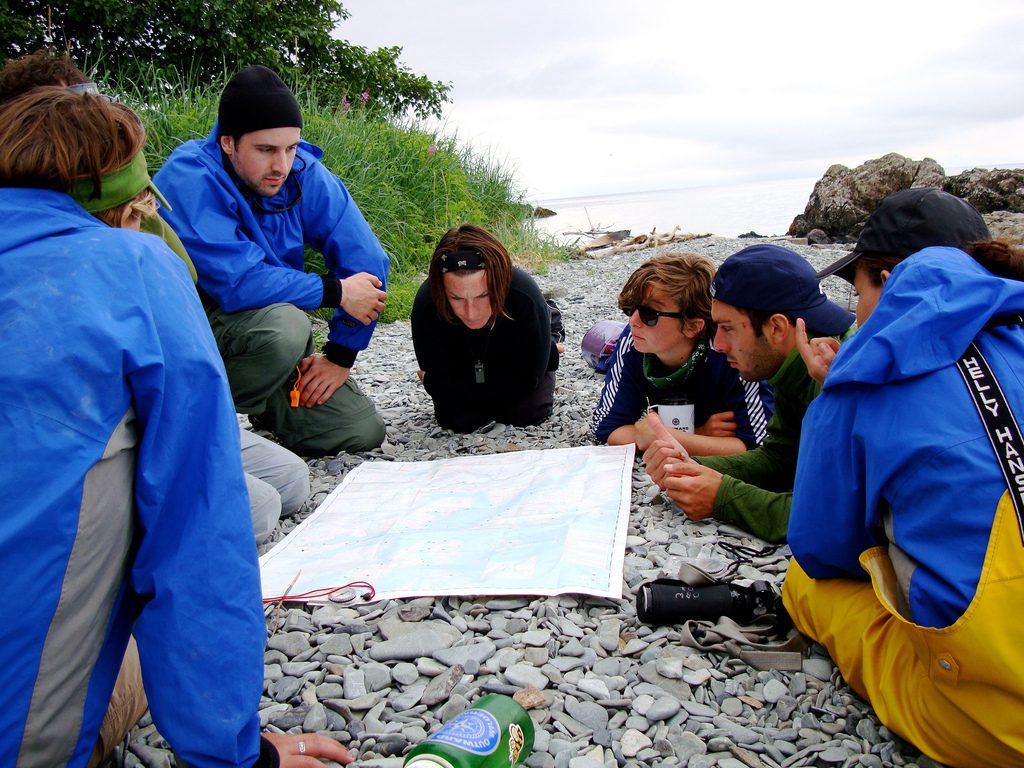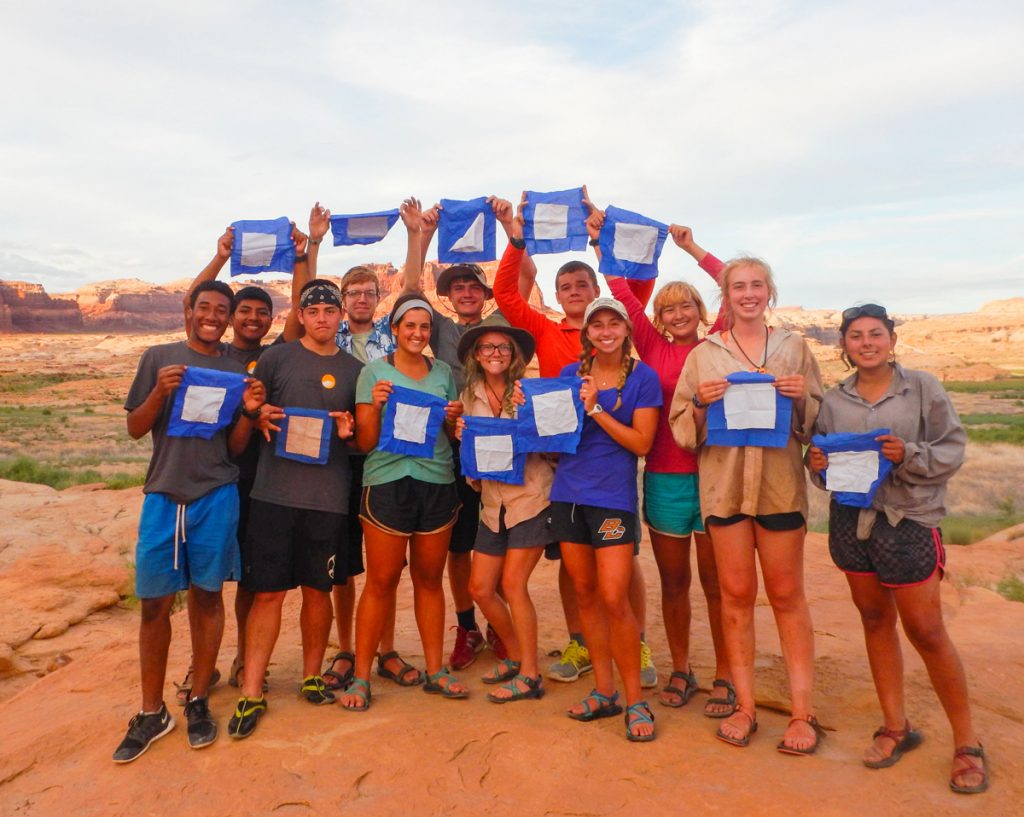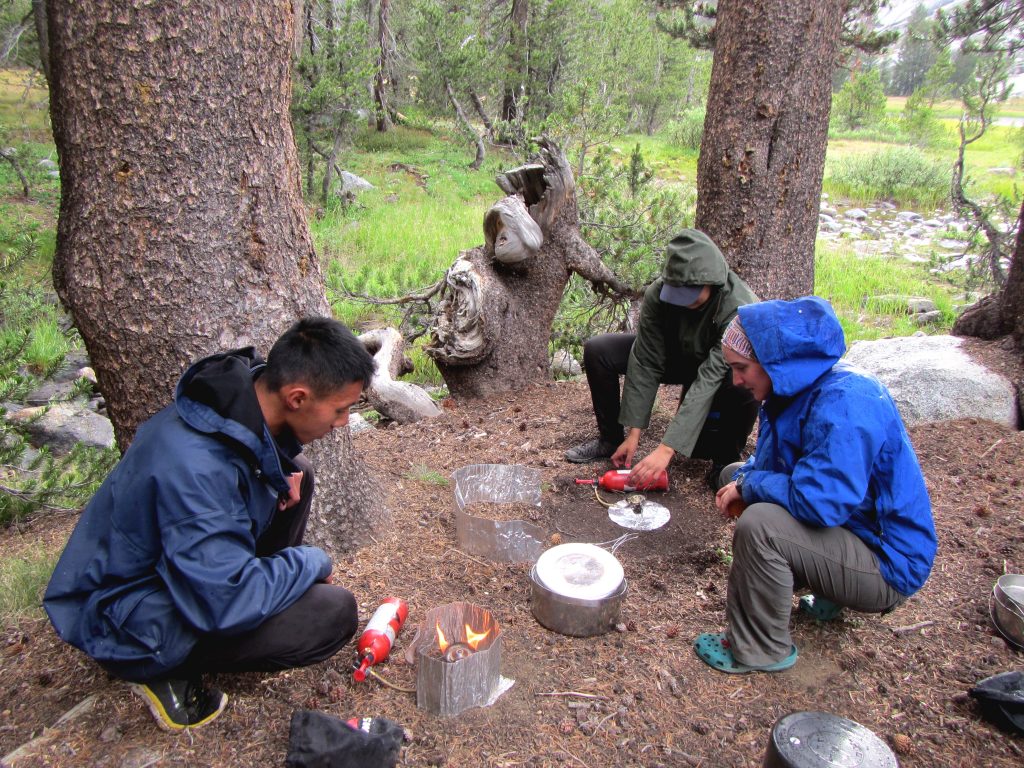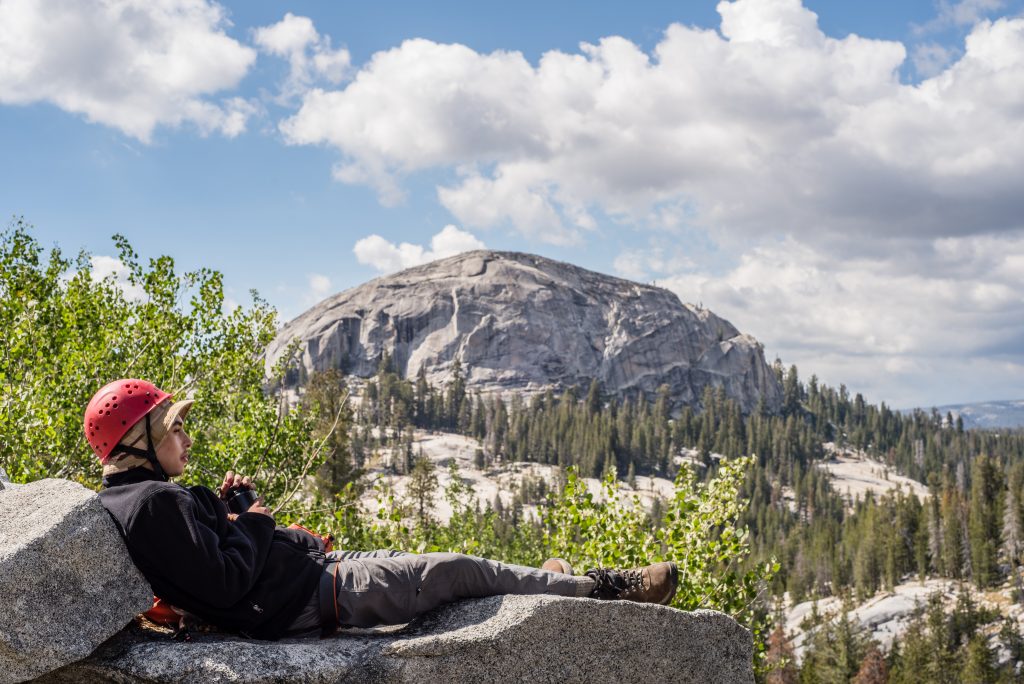“What brings you to Outward Bound?” I find myself asking students this question a lot, as I am a Logistics Coordinator for the Northwest Outward Bound School. Perhaps because I know from experience, there’s always a story. I especially like asking our summer and fall semester students, who come from all walks of life to spend 50 days in the North Cascades wilderness I call home.
With only these six words, I’ve been introduced to gem experts in need of a break from their work, business owners seeking fresh leadership skills, foreign educators looking for tools to apply back home or even high school graduates unsure about their next step. It amazes me how varied our students’ backgrounds can be, especially considering the context in which I meet them.

Photo by Theo Theobald
As a Logistics Coordinator, I spend most of my time with students during transitions, beginning at the course start, traveling between the sea and mountains of northern Washington and again at course end. This provides me with a unique view of our courses’ transformative process. I get a series of snapshots, a condensed view of the magic that occurs on an Outward Bound expedition. I see students arrive, excited and nervous, and make their first introductions. Days later, I watch them emerge from the sea or the mountains as something bigger and more powerful than the individuals that departed: a group, a team, a community.

That sense of community is what initially drew me to Outward Bound, and what solidified my passion for the work that we do. Just two years ago, long before I started working for Outward Bound, I found myself starting my own course, a 50-day Instructor Development program for aspiring outdoor educators. I began my journey in the San Juan Islands where I spent two weeks learning how to pack and paddle a sea kayak, how to decode nautical charts and tide tables, and how to build a shelter with little more than sticks and a waterproof sheet.
Then, along with fifteen fellow students, I traveled to the heart of the North Cascades where we spent another two weeks learning wilderness medicine and practicing a seemingly endless variety of emergency scenarios. We emerged from this intensive training with a new confidence in our abilities and those of our companions, as well as Wilderness First Responder certifications to share with potential employers. Armed with our newfound medical skills, we set out for a grueling 22 days of mountaineering in the Pasayten wilderness, with a backdrop of mountains that would put most movie sets to shame.
What all did I learn? In this period of time, I learned how to…
- Light and repair a white gas stove.
- Safeguard my gear from snow and rain.
- Traverse the narrowest of ledges with a 50-pound pack on my back.
- Laugh alongside total strangers.
- Better communicate across cultural, political and emotional divides.
- Advocate for my own needs.
- Share kind and compassionate feedback with others.
- Receive feedback, both positive and constructive, with grace (or something resembling it).
- Cross an alpine stream with ease, and find my way through the densest of scrub brush.
- Triangulate my location on a map.
- Transform canned chicken and quinoa into a gourmet meal.
- Sit silently with myself for two days and two nights, and realize how very large a marmot can sound in the dark.
- See the world from its peaks, both literally and figuratively.
- Relinquish each summit and return with what little I could carry in my mind.
I learned some things for which I am still seeking language to communicate, and a few that I suspect I never will.
Only recently a colleague gave me the vocabulary to express one of the most valuable things I learned during my semester with Outward Bound. People remember so little about their day-to-day activities, he remarked. Weeks slip by and most people remember only a few key moments or interactions. But, after a wilderness expedition, students remember every minute of every day. Ask them, he told me. Even years afterward, a student will be able to tell you what she ate for dinner the night of that tremendous rainstorm, or what happened when raccoons descended upon her group’s island camp.

An Outward Bound Instructor is shown teaching her students cooking and safety techniques before preparing dinner for the crew.
That heightened awareness, and the sense of value that comes with it, is something I’ve been fortunate enough to see paid forward. Earlier this summer, I brought a fresh supply of food to one of our courses in the field and was surprised to see a student who had been on one of my courses the previous year. He had enjoyed his time backpacking in central Washington and returned for a longer, more technical mountaineering course.
As he and I laughed about some of the memories from his course the previous year, it struck me: here was a young man with whom I’d spent maybe a dozen hours, all over a year ago. And both of us remembered clearly the other students and Instructors on his course, and all of the little details that made his experience worth repeating.
Leaving this student with his group in the mountains, I reflected again on my own experience, and the many things I continue to glean from it. And I realized there’s another question, one I’m still in the process of answering: “What are you bringing away from Outward Bound?” It’s a question that I now ask my students, perhaps because I know from experience, there’s always a story.

Photo by Rikki Dunn
Are you interested in working in the field of outdoor education? Start by checking out these Instructor Development courses:
Yosemite, Joshua Tree & San Francisco Instructor Development
Maine Coast and Appalachian Mountain Instructor Development
Blue Ridge Mountains Instructor Development
Washington Instructor Development
About the Author
Francesca Fenzi is currently a Logistics Coordinator for the Northwest Outward Bound School.




